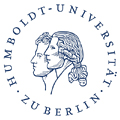
<< · I · II · III · IV · V · VI · VII · VIII · IX · X · XI · XII · XIII · XIV · XV · XVI · XVII · XVIII · XIX · XX · XXI
2nd Transatlantic Students Symposium
From the National to the Global and Back? The Role of the United Nations as a Supranational Institution
Bard College & Humboldt-Universität zu Berlin.
Annandale-on-Hudson, and New York, March 5-14, 2004


Program Description
The United Nations have been founded to facilitate multilateral solutions to global problems, to promote a new world order of international cooperation and peace. Yet somehow it might seem that such an order is becoming more and more of an illusion. It appears that crises of global reach are taken on by only a handful of players on their own; the attempt to achieve a unison reaction is being made on fewer and fewer occasions. It is issues like the International Criminal Court, the Kyoto agreement, the SARS crisis, and the War on Iraq which have contributed to the appearance of an ever-growing rift within the International community.
From the perspective of the United Nations, the global and the local are seen in unison. The basis of such a union is neither artificial nor arbitrary: Human rights, amongst which are life, liberty and security of person, have been found and contested throughout all history and all cultures. Furthermore, they have been universally agreed upon in the Charter of the United Nations and the Universal Declaration of Human Rights. In addition, there is constant debate about the role of arts and culture as either unifying or dispersing factors in the concept of global governance and unity.
The ideas that have formed the United Nations have been shaped by the immediate experience of global destruction and the complete disregard of such values. However, just as its predecessor, the League of Nations, suffered from a particularity of interests, the UN grew out of the power structures of both the past war and the incipient Cold War. Had the UN been paralyzed by the polarization between East and West, the disintegration of the Soviet Union has left the world with a strange imbalance, and a resurgence of atomized interests that lay dormant under the agony of the post-war period.
Can the United Nations be effective as an international organization, or do they need to have more supranational authority? Can such a perspective be realistic at all? What would be the basis for such a supranational, sovereign institution, a kind of world government?
Even within the culturally more homogeneous European Union, the struggle between the individual states and the Union remains a constant state of negotiation. Those who tend to favor supranational structures, like Germany and smaller nations, stand in constant conflict between those who believe in the strength of the nation state; both rooting their behavior in the lessons of the same past. What hardly works in the European context is repeating itself in other non-national structures and organizations like the Arabian League, NAFTA and the UN.
The new and old fragmentation manifests itself in times of crisis, ad hoc coalitions of the willing (and unwilling) determining the politics of the day. Do such developments arise out of a systematic disregard not only of the UN but also of the idea behind them? Or do they constitute legitimate answers to a failure of the organization as such, to the systemic weakness due to historical circumstances at the time of its conception, a birth defect that needs correction? Are they the preemptive response to a still unanswered question of universally accepted global authority?
Amongst the different factions, Germany counts as one of the most avid proponents of inter- and supranational solutions. This is Germany's answer to its historical responsibility, a conviction that enduring peace, security and freedom can result only from the integration of the nation state into the global sphere. On the other hand, the only true global player left, America, feels increasingly frustrated with the status quo of the United Nations, with the composition of its institutions and grave failures to form decisions in the past, like in the cases of Yugoslavia and Rwanda.
Both are relevant questions that need to be considered. How do you console those basic opposing concepts? Can an answer be found in the free interplay of strong and weak players, or is non-national guidance needed to not only increase the legitimacy of ad-hoc measures but also to create an atmosphere of trust and acceptance? The second symposium held by students from Bard College, Annandale on Hudson, and Humboldt-Universitšt zu Berlin will tend to such questions. Together we will approach the topic from a German and an American point of view, contributing to the continuing transatlantic dialog.
Symposium Week Field Trips
Workshops: at Bard College and at the Bard Globalization & Int. Affairs Program
Site Visits: New York, Ground Zero, Wall Street
Institutional Visits: UN Headquarters, Carnegie Council, Human Rights Watch, Ellis Island Museum, American Council on Germany, German Ambassador to the US
Total participants: 21
Organizers
Philipp Kneis, Janine Ludwig,
PD Dr. Reinhard Isensee (Humboldt),
Dr. Susan Bernofsky (Bard)
Student Organizers
Bert Bobock (Humboldt), Emily Steinberg, Valon Xharra (Bard)
Student Participants (not organizers)
14 (Bard: 4, Humboldt: 10)
Conference Program
Partners and Supporters
Humboldt-Universität zu Berlin: International Office,
American Studies Program,
Student Union of the Institute of English and American Studies
Deutscher Akademischer Austauschdienst (DAAD)
see also: Latest Program Report
back to: Symposia

Statue of Liberty, New York

The Symposium Group at Bard College

Symposium Conference

The Symposium Group at the United Nations

United Nations

Meeting with German Ambassador

Symposium Conference Conclusion